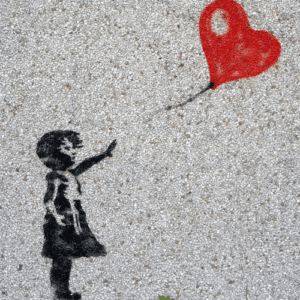The most important aspect of any relationship is not what we say or do, but rather who we are as individuals. “Stephen Covey”
Relationships…It’salways fun to make new connections, whether those are with old friends or potential romantic partners.
Table of Contents
At first, at the very least, we observe in this new acquaintance a reflection of our ideal selves.
We alternate between each other’s company like a pair of turtledoves. We coo about our deepest feelings and thoughts and can’t believe how well we get along.

Relationships
If everything continues to go according to plan, the initial elation that comes with forming a new connection will eventually give way to a genuine interest in the other person. When we show concern for another person, they show concern for us in return, and vice versa.
We make an effort to communicate with one another in an open and honest manner, as well as to listen carefully and pay attention. Over time, we’ve grown to trust each other more, which lets us share our deepest fears, hopes, and secrets. Additionally, out of consideration and reverence for the other person, we hold these things for them with a gentle hand.
As a crush develops into love and then into a mature love, the emotional ties we share with one another become stronger and more complex. No matter what kind of relationship we have—whether it’s platonic, romantic, or married—we can’t live without each other.
In most cases, after spending a few years together, things begin to become monotonous between the two of them. Time, responsibilities, and stress have taken their toll, and we no longer have the same amount of fun that we used to have together in the beginning.
When we look at our significant other, we begin to see some of our less admirable qualities reflected back at us. [C]onsider the expression of pent-up hostility and frustration often results in the use of words that are both hurtful and angry. Perhaps we try to mislead one another through both our words and our actions.
Oh, the relief—the indescribable relief—of feeling safe with a person, of being able to pour out one’s thoughts and words without censoring or editing them, of knowing that a faithful hand will take them and sift them, keeping what is worth keeping and blowing away the rest with the breath of kindness. Oh, the relief — the indescribable relief—of feeling safe with a person. Written by Dinah Craik, “A Life for a Life” (1859).
On occasion, we have to go through the motions of drifting apart and then reuniting multiple times before we can finally heal our wounds and forge a bond that is both stronger and more intimate than it was previously. This is because we need to go through the motions of drifting apart and then reuniting multiple times.
On the other hand, a lack of interest from one partner in the other may indicate that the relationship is ending. The death knell for any relationship is disengagement; it is far more destructive than any argument, act of betrayal, or string of cutting words ever could be.
One of the signs of disengagement is a decrease in the amount of effort put into a relationship. The fact that neither party is making an effort to keep the other happy and healthy in the relationship is the root cause of its deterioration.
Brene Brown is a research professor and an expert on vulnerability. In her book “Daring Greatly: How the Courage to Be Vulnerable Transforms the Way We Live, Love, Parent, and Lead,” she talks about how disengagement is the ultimate betrayal. Brown writes that disengagement is a “betrayal of oneself.”

A Life for a Life
I asked, “What do you think is the most blatant breach of trust you have ever seen?” He’s had sexual relations with every one of my closest friends. She has not been forthcoming with the truth regarding the location of the funds. It would appear that another individual has been selected in preference to me. Someone is taking advantage of one of my vulnerabilities… There is no question that any act of betrayal is horrible; however, some betrayals are sneakier and more harmful to trust than others.
Most of the time, this kind of betrayal happens a long time before any of the others. In the context of this conversation, I’m talking about the betrayal that comes from not taking part. An absence of worry or concern. act of severing or removing ties to demonstrate a lack of interest in working to make the relationship successful.
The word “betrayal” brings to mind instances in which the person was cheated on, lied to, had their confidence broken, was not defended against gossip, and was passed over for other people. Although the aforementioned behaviors constitute betrayal, they are not the only kind that can take place.
Disengagement was the form of betrayal that occurred most frequently during the course of my research and was the one that caused the most damage to the trust relationship. If I were forced to choose between the two, I would go with disengagement.

The pain of separation
When people we care about or feel a deep connection with stop caring, paying attention, investing, and fighting for the relationship, trust is broken, and pain is felt by those who are affected. When we are cut off from other people, we experience feelings of shame and our most primal fears, including the fear that we will be disregarded, unloved, and deemed unworthy of love.
This type of covert betrayal has the potential to cause significantly more damage than, for example, telling a lie or having an affair due to the fact that we do not have a crystal-clear idea of what happened to cause our pain. It has the potential to drive you insane.
It has the potential to drive anyone, even the disengaged party, completely insane. You have the sensation of being bound, but at the same time, you can feel yourself unraveling. It’s possible that the person who doesn’t care isn’t even aware of their own lack of interest in the topic.
They put on an act of being too busy or too stressed, or they attempt to deflect attention away from the issue altogether by doing one of these things.

Relationships
A single person’s absence can be enough to taint a relationship and make it unhealthy. The individual who is making an active effort to interact with the other and who is looking for interaction from the other will eventually become exhausted from their efforts and give up trying to interact with them.
It’s possible that the person who wants to disengage has this as their end goal. They are acting in a covert manner in order to end their relationship with you. Sometimes they are unaware of the harm they are causing until a loved one confronts them about it or walks away from the relationship.
Dr. Martin Seligmen, a psychologist, educator, and author who also served as the American Psychological Association’s immediate past president, has written an excellent article on the topic of engagement. Because of that single event, his entire life as well as his professional trajectory changed.
“When it occurred, my daughter Nikki, who was five years old at the time, and I were out in the garden pulling weeds. Despite the fact that I write books for children, I’m not very good with children in general.
When I weed the garden, I do so with the goal of completing the current task at hand because I place a high value on both effectiveness and efficiency. On the other hand, Nikki was dancing while also tossing weeds into the air. It finally reached the point where I had to yell at her. After leaving the room, she came back in and said,
“Daddy, I want to talk to you.”
‘Yes, Nikki?‘
Before I turned five, I had a conversation with my dad in which I asked him, “Daddy, do you remember?” When I was between the ages of three and five, I was a chronic complainer. I would complain and groan on a daily basis.
My decision to stop being a complainer was a deliberate one that I made when I was five years old. That was the thing that required the most effort from me out of everything I’ve ever had to do. In addition, I assure you that I will refrain from complaining and that you will improve your pessimistic demeanor.
This was a breakthrough of the highest order for me in terms of understanding. I now have a deeper understanding of Nikki, as well as of parenting, myself, and the field in which I work.
I came to the realization that there is more to parenting than simply helping a child overcome their shortcomings. It is about assisting them in recognizing and developing their distinctive abilities, as well as identifying the domains in which they excel and the communities in which they can thrive.”
This is not something that only applies to children in any way, shape, or form. Not only how well we grow as individuals but also how well the relationship grows, is determined by how well we connect with, learn about, and nurture the other person, as well as how well they do the same for us. This is true whether or not they do the same for us.
So, what does it mean to be in a relationship where both people are fully committed?
At the risk of simplifying a long-term partnership into a series of checkboxes, here is one anyway:
- acknowledging and accepting one another’s weaknesses, scars, and suffering;
- assisting the other person in resolving their problems and cultivating a sense of love and safety for themselves.
- the capacity to be open and honest about one’s own challenges and tribulations; listening that is not passive but also includes some degree of reflection;
- the capacity to communicate one’s thoughts and feelings and to resolve disagreements in a mature manner; the twelve steps to respecting oneself:
- presence, both literally and figuratively; presence;
- efforts made on purpose to forge relationships based on a shared passion or pastime;
- attempts to keep in contact despite the fact that they are geographically separated;
- putting in the work and putting the relationship ahead of other things in one’s life, such as one’s job or hobbies, in order to give it top priority in one’s life.
- dedication to one’s own growth as well as the encouragement of others to do the same;
- willingness to make amends and forgive past transgressions.
Of course, the couple’s engagement is a very personal and special time for them. It will be obvious to you both when you see and when you feel it. You can still vividly recall what it was like when the two of you were completely smitten with one another.
How does it feel, and what does it look like right now?
Take some time to think about the relationships you have with the people in your life who are the most important to you, including your family, friends, significant others, and loved ones. Are you putting in your best effort? Is that the case? Is there a way that we can infuse the partnership with a greater sense of passion?
Do not put the relationship at risk by choosing not to take an active part in it. Don’t lose sight of all the wonderful things this person brings into your life and the reasons you care so deeply for them. And then begin conversing with them once more.
If you’re having trouble because the other person isn’t interested, communicate with them in an honest and composed manner. Communicate to them how your feelings are affected by their lack of interest, but do so without displaying anger or placing blame. Inquire as to whether or not they plan to carry on the relationship with you or whether or not they will be willing to be honest with you about how they feel.
As a general matter, take into consideration the following recommendations:
- Determine the source of the problem: Try to identify the factors that, in your opinion, contributed to your loss of interest. Is there a breakdown in communication, mistrust, or an inability to feel appreciated as a result of this? The first thing that needs to be done in order to solve a problem is to figure out where it all started.
- Engage in conversation with your partner and let them know how you’re feeling by taking the initiative to do so. Disclose your concerns to them, and make sure you pay close attention to how they react. Open lines of communication tend to help make personal relationships more stable and safer.
- Spend time together: Whether it’s a date night out or a weekend getaway, don’t forget to make time for the person you have a significant other relationship with. You should put spending time together and getting to know each other as a top priority.
- Express your gratitude to your partner by letting them know how much they mean to you. Demonstrate to them and the relationship as a whole that you value their efforts and the connection you share.
- It is important to let go of grudges and resentment, as they can cause you to withdraw from life. This is why it is important to let go of grudges and resentment. Acknowledge the importance of letting go of resentment and forgiving others. A true act of forgiveness requires letting go of the past and moving on with your life.
- If you and your partner are having trouble communicating again, you should seek the assistance of a trained professional. They can help you work through your problems by giving you advice and emotional support.
It is essential to keep in mind that rekindling a relationship after a period of emotional distance requires the active participation of both individuals involved. It takes patience, empathy, and persistence to rebuild trust and intimacy between two people.
Read more:
https://dictionary.cambridge.org/dictionary/english/disengagement
9 Reasons To Counting You Blessings (Even When Life Is Not Perfect Right Now)
9 Reasons Why Accepting Change Is So Important For Personal Growth Growth
How To Be Joyful With Your Life Right Now: 13 Tips
10 Golden Rules For a More Fullfilling Life
The Ultimate Depression Article (Part 2)




